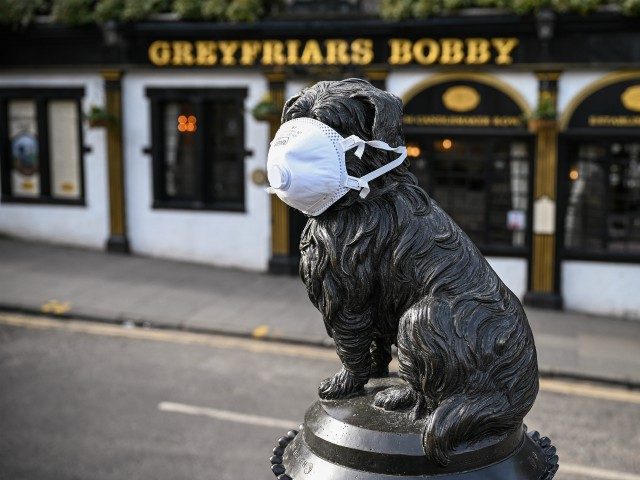The government’s chief scientific advisor admitted that vaccines for new viruses are “long shots” and that “only some end up being successful”.
Speaking during the Downing Street coronavirus press briefing on Sunday, Sir Patrick Vallance said: “All new vaccines that come into development are long shots. Only some end up being successful.”
“Coronavirus will be no different and presents new challenges for vaccine development. This will take time,” he said in comments reported by The Times.
“Ideally, we would have [a vaccine] ready to take off the shelf and roll out,” Sir Patrick added. “But this is a new disease that didn’t exist before December, and we have a lot to learn about the virus and how the body responds to it.”
The remarks come after Oxford University scientist Sarah Gilbert, who is working on a vaccine against coronavirus, said in April that an inoculation method could be ready — but not for another five months. Clinical trials and producing vaccines for millions of Britain’s could still take several months more, however.
While Professor Gilbert had said earlier in the month that she was “80 per cent confident” the vaccine would work, she was more cautious in remarks to the BBC on Sunday.
“I think the prospects are very good, but it’s clearly not completely certain,” Prof Gilbert told the BBC.
The Oxford University scientist raised other complications in the rollout and manufacturing of a vaccine, including that the injection may alter a person’s immune system, making contracting the Chinese virus more dangerous. She also raised the issue that there are not enough manufacturing facilities in the country that could make the vast numbers of vaccines required, saying: “We need to go to a much bigger scale.”
University of Oxford human trials of the vaccine are expected to begin this week. However, Sir Patrick hinted that a vaccine alone would not result in the automatic end of emergency pandemic measures, saying on Sunday: “Ultimately the way out will include vaccines, new medicines or both.”
UK Could Face up to Six Waves of Chinese Coronavirus in the Next Year https://t.co/Ru8DnljT5l
— Breitbart London (@BreitbartLondon) April 18, 2020
In terms of naturally-attained immunity through surviving infection, the World Health Organization (WHO) issued a warning on Friday saying that there was currently no evidence that somebody with coronavirus antibodies is protected from reinfection.
Leading British scientists have stated in recent weeks the approach to the novel Chinese virus being more of a case of managing the pandemic, rather than defeating it outright. A leading scientist at University College London said that the UK could face up to six waves of coronavirus.
Speaking to MPs on the Health and Social Care Committee, Professor Anthony Costello said that the UK needs “to maintain social distancing of some kind when we lift the national lockdown”. He added that those under longer-term restriction should be cases of coronavirus and those who have had contact with them.
Prof Costello also warned: “We will probably have the highest death rate in Europe, we have to face the reality of that.”
In recent weeks, other scientists have said the UK could be facing intermittent periods of lockdown that could disrupt the country for up to a year unless there is progress on a vaccine.
Brexit Party leader Nigel Farage predicted that wearing masks and social distancing may become the norm, and on some level may be the price paid for easing coronavirus lockdown measures and getting everyone back to work.
The British government is under pressure to come up with a solution that balances public health and the long-term financial impact of current lockdown measures.
Farage Predicts Wearing Masks and Social Distancing Will Become the Norm https://t.co/v2QVDO2q9p
— Breitbart London (@BreitbartLondon) April 15, 2020

COMMENTS
Please let us know if you're having issues with commenting.